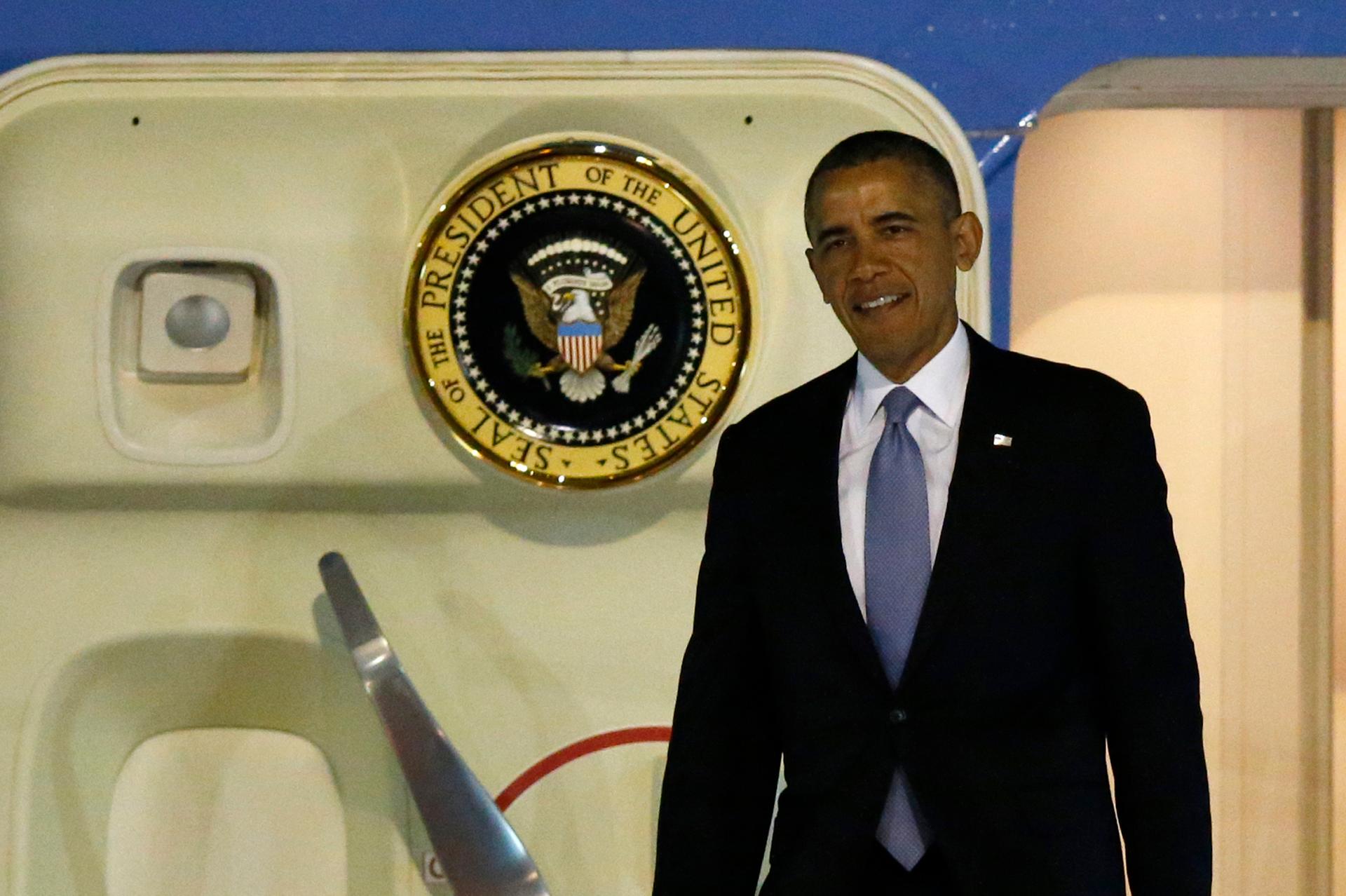Why Asian leaders are watching the Ukraine crisis
President Barack Obama steps out from Air Force One as he arrives in Tokyo. He’s starting a four-nation trip that comes at a time of rising tension in the region, and concerns about US credibility.
President Barack Obama landed in Japan Wednesday at the start of a four-nation Asian tour.
Ahead of the trip, the President gave an interview to Tokyo's Yomiuri newspaper and explicitly said the United States would go to war to defend Japan's claim to islands disputed with China.
"The policy of the United States is clear," he said. "The Senkaku islands are administered by Japan and therefore fall within the scope of Article Five of the US-Japan Treaty of Mutual Cooperation and Security."
China's state media denounced US policy ahead of the trip, calling it "a carefully calculated scheme to cage the rapidly developing Asian giant."
President Obama has made the "pivot to Asia" a centerpiece of his foreign policy, to meet the challenges of a rising and increasingly assertive China. But at the same time, Russia seems to be pulling US attention back to Europe: several hundred US troops are en route to Poland and other NATO allies that feel threatened by Moscow.
So what should the US be prioritizing? And how do these issues relate to each other?
“It’s an interesting one for President Obama,” says David Gordon, “because when Obama articulated the so-called pivot to Asia, it was about reassuring US friends and allies in the region that the US is really committed to this part of the world."
Gordon was the director of policy planning at the State Department for two years, until 2009. He is now head of research with the analytic firm, Eurasia Group.
“Today, the interesting challenge is that the Asian allies are looking at what Obama has been doing in the Middle East and vis-a-vis Russia, and feeling insecure. … They look back and say, 'wow! If Obama isn’t being tough on Assad and Syria, and on Putin, is he really going to back us if the Chinese put the pressure on? … Is he going to stand up to Putin in a way that reassures the Asian allies that commitments an American president is making are real?'”
“There’s a big challenge to US credibility in Asia right now,” he adds. “The fact of the matter is that the United States cannot really fully pivot to Asia.”
